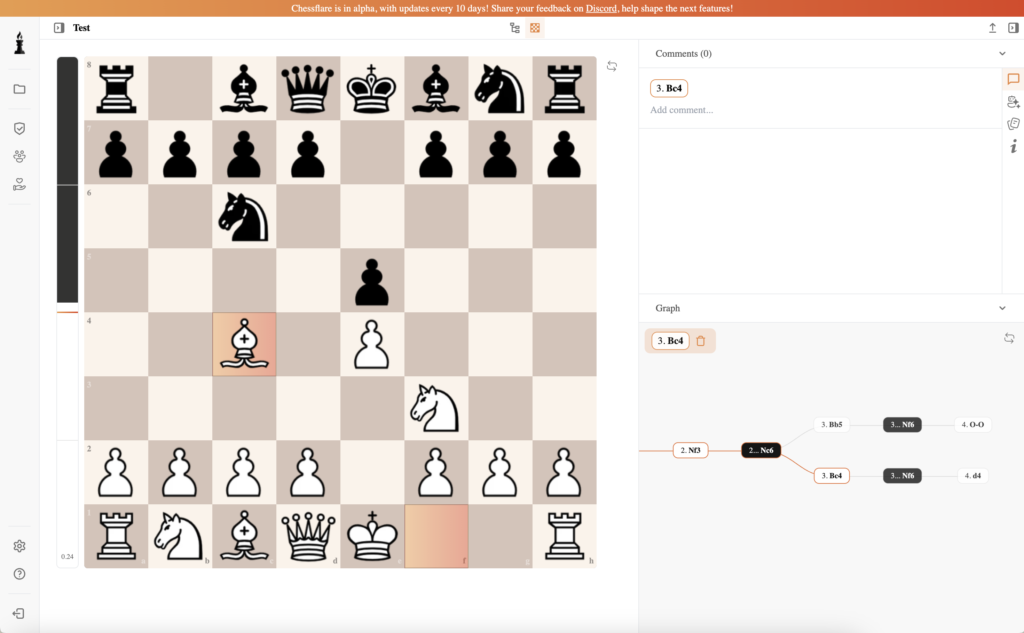Winning a chess game on time when the opponent’s clock runs out, often used in blitz and bullet games.
Introduction
Flagging is a term in chess that refers to winning a game by making your opponent run out of time, rather than checkmating them. This strategy is most commonly used in blitz and bullet chess, where time control is extremely limited, and fast moves can be as important as good moves.
Why is flagging such a crucial skill in speed chess? How do strong players use it to their advantage? And what techniques can help you become better at flagging—or avoiding being flagged? This article explores the art of flagging, when to use it, and how to improve your speed chess survival skills.
1. What Does « Flagging » Mean in Chess?
- When a player runs out of time, they lose the game, even if they have a better position or more material.
- The term “flagging” comes from traditional analog chess clocks, which had a small flag that would drop when time expired.
- In online chess, flagging is often associated with hyper-fast time scrambles, especially in bullet (1-minute) and blitz (3-5 minutes) chess.
✅ Example of Flagging:
- A player with only a king but more time can still win on time if their opponent runs out of time first.
- Even in a completely losing position, flagging can allow you to steal a win if your opponent cannot move fast enough.
2. When Should You Try to Flag Your Opponent?
2.1 In a Winning but Low-Time Position
- If you have a winning position but only a few seconds left, playing quickly is more important than finding the best move.
2.2 In an Equal or Losing Position
- If you’re losing but your opponent has very little time, you can increase the speed of play to try and flag them.
2.3 When Your Opponent Is Playing Too Slowly
- If your opponent is too focused on precision, you can increase your speed and force them into time trouble.
3. Techniques for Flagging Your Opponent
3.1 Play Instantly in Time Scrambles
- In bullet and blitz, speed is more important than accuracy when your opponent has very little time left.
- Pre-move (moving before your opponent plays) to save time.
3.2 Keep the Position Complicated
- Avoid trading pieces and keep the game dynamic.
- In low-time situations, your opponent is more likely to blunder under pressure.
3.3 Use Simple, Fast Moves
- Avoid deep calculations and play forcing moves (checks, captures, and threats).
- Stick to safe, repetitive moves if needed to maintain the clock advantage.
3.4 Play Moves That Require a Response
- If your opponent is low on time, play moves that force them to react rather than passively moving pieces.
3.5 Use Premoves and Auto-Queen
- Premoving (playing your move before your opponent moves) can save valuable time in online chess.
- Auto-queen setting ensures you don’t waste time selecting a promotion piece.
4. How to Avoid Getting Flagged
4.1 Manage Your Time Early
- Don’t play too slowly in the opening and middlegame—save time for later.
4.2 Trade Down to Simpler Positions
- In winning positions, simplify to easier endgames where quick moves are possible.
4.3 Use Checks and Repetitions to Gain Time
- If playing online, repeating moves may allow you to gain a tiny time increment (if increments are enabled).
4.4 Avoid Overthinking Moves
- If you have less than 10 seconds, make the best move quickly, even if it’s not perfect.
5. Famous Players Known for Flagging
Hikaru Nakamura (Speed Chess Legend)
- One of the best flaggers in bullet chess, known for ultra-fast reflexes and move efficiency.
Magnus Carlsen (Blitz and Bullet Specialist)
- Even as World Champion, Carlsen wins many games on time, proving that flagging is a valuable skill.
Daniel Naroditsky (Time Scramble Expert)
- Known for his incredible speed and flagging technique, Naroditsky excels in chaotic time-pressure battles.
6. Ethical Considerations of Flagging
- Is flagging fair? Yes, time is part of chess! Managing time is a skill, and running out of time means losing the game.
- Is flagging bad sportsmanship? Not at all—if the rules allow it, it’s a legitimate way to win.
- Should you resign instead of being flagged? No! Fighting until the clock runs out is completely normal in competitive chess.
7. Conclusion
Flagging is an essential skill in blitz and bullet chess, allowing players to win even from losing positions or convert better positions under time pressure. Whether you want to master flagging or avoid being flagged, improving your speed, efficiency, and decision-making in time scrambles can make a huge difference.
Key Takeaways:
✔ Flagging is a strategic way to win on time when an opponent is too slow.
✔ Premoves, forcing moves, and quick play are key to successful flagging.
✔ Avoid being flagged by managing time wisely and simplifying winning positions.
✔ Flagging is a legitimate part of chess and a valuable skill in fast time controls.
By practicing flagging techniques and improving your speed chess skills, you can become a faster, stronger player and increase your chances of success in online and over-the-board chess!

